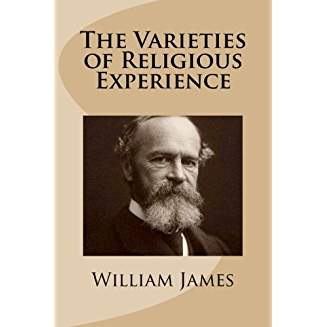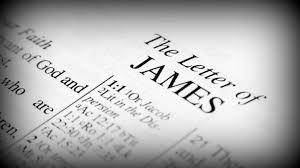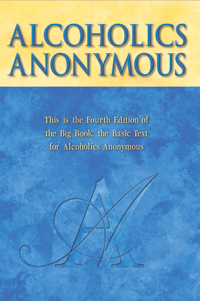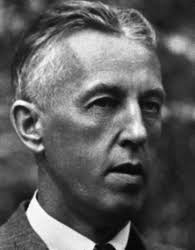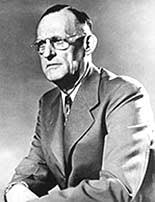Appendix: Spiritual Principles in James
In discussing many aspects of spiritual life and thought in The Varieies of Religious Experience, William James makes certain observations that are worthy of consideration in their own right:
The memory of an insult may make us angrier than the insult did
when we received it. We are frequently more ashamed of our blunders afterwards than
we were at the moment of making them... Page 53
Evil is a disease; and worry over disease is itself an additional form of disease, which
only adds to the original complaint. Page 125
General Booth, the founder of the Salvation Army, considers that the first vital step in saving
outcasts consists in making them feel that some decent human being cares enough for them to take
an interest in the question whether they are to rise or sink. Page 200, Footnote
Our spiritual judgment, I said, our opinion of the significance and
value of a human event or condition, must be decided on empirical grounds
exclusively. If the fruits for life of the state of conversion are good, we ought to idealize
and venerate it, even though it be a piece of natural psychology; if not, we ought to
make short work with it, no matter what supernatural being may have infused it. Page 232
But just as our primary wide-awake consciousness throws open our senses to the touch of things
material, so it is logically conceivable that if there be higher spiritual agencies that can
directly touch us, the psychological condition of their doing so might be our possession
of a subconscious region which alone should yield access to them. The hubbub of the
waking life might close a door which in the dreamy Subliminal might remain ajar or open. Page 237
Nothing annihilates an inhibition as irresistibly as anger does it; for, as Moltke says of
war, destruction pure and simple is its essence. This is what makes it so invaluable an
ally of every other passion. Page 259
Next,experience shows that there are times in every one’s life when one can be better
counseled by others than by one’s self. Inability to decide is one of the commonest
symptoms of fatigued nerves; friends who see our troubles more broadly, often see
them more wisely than we do; so it is frequently an act of excellent virtue to consult
and obey a doctor, a partner, or a wife. Page 305
But in this course of lectures ecclesiastical institutions hardly concern us at all. The
religious experience which we are studying is that which lives itself out within the
private breast. Page 328
“The spiritual life,” he writes, “justifies itself to those who live it; but what can we say to those
who do not understand? This, at least, we can say, that it is a life whose experiences are proved
real to their possessor, because they remain with him when brought closest into contact with the
objective realities of life. Dreams cannot stand this test. We wake from them to find that they are
but dreams. Wanderings of an overwrought brain do not stand this test. These highest experiences
that I have had of God’s presence have been rare and brief — flashes of consciousness which have
compelled me to exclaim with surprise — God is here! — or conditions of exaltation and insight
less intense, and only gradually passing away. Page 388, quoting from Autobiography of J. Trevor
The prime characteristic of cosmic consciousness is a consciousness of the cosmos, that is, of the
life and order of the universe. Along with the consciousness of the cosmos there occurs an
intellectual enlightenment which alone would place the individual on a new plane of existence —
would make him almost a member of a new species. To this is added a state of moral exaltation, an
indescribable feeling of elevation, elation, and joyousness, and a quickening of the moral sense,
which is fully as striking, and more important than is the enhanced intellectual power. With these
come what may be called a sense of immortality, a consciousness of eternal life, not a conviction
that he shall have this, but the consciousness that he has it already.” Page 389-390, Dr. R. M. Bucke
For him who confesses, shams are over and realities have begun; he has exteriorized his rottenness
If he has not actually got rid of it, he at least no longer smears it over with a hypocritical show
of virtue — he lives at least upon a basis of veracity. Page 452
It may well prove that the sphere of influence in prayer is
subjective exclusively, and that what is immediately changed is only the mind of the
praying person. But however our opinion of prayer’s effects may come to be limited by
criticism, religion, in the vital sense in which these lectures study it, must stand or fall
by the persuasion that effects of some sort genuinely do occur. Through prayer, religion
insists, things which cannot be realized in any other manner come about... Page 455-456
When we see all things in God, and refer all things to him, we read in common matters
superior expressions of meaning. The deadness with which custom invests the familiar
vanishes, and existence as a whole appears transfigured. Page 465
It is impossible, in the present temper of the scientific imagination, to find in the driftings
of the cosmic atoms, whether they work on the universal or on the particular scale, anything but
a kind of aimless weather, doing and undoing, achieving no proper history, and leaving no
result. Page 481
The individual, so far as he suffers from his wrongness and criticises it, is to that extent
consciously beyond it, and in at least possible touch with something higher, if anything
higher exist. Along with the wrong part there is thus a better part of him, even though
it may be but a most helpless germ... He becomes conscious that this higher part is
conterminous and continuous with a MORE of the same quality, which is operative in
the universe outside of him, and which he can keep in working touch with, and in a
fashion get on board of and save himself when all his lower being has gone to pieces in
the wreck. Page 498-499
Meanwhile the practical needs and experiences of religion seem to me sufficiently met
by the belief that beyond each man and in a fashion continuous with him there exists a
larger power which is friendly to him and to his ideals. All that the facts require is that
the power should be both other and larger than our conscious selves. Anything larger
will do, if only it be large enough to trust for the next step. It need not be infinite, it
need not be solitary. It might conceivably even be only a larger and more godlike self,
of which the present self would then be but the mutilated expression, and the universe
might conceivably be a collection of such selves, of different degrees of inclusiveness,
with no absolute unity realized in it at all. Page 515
Return to Top
______________________________________________________________________________________
Footnotes
